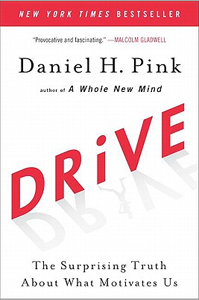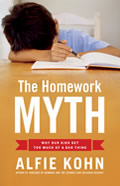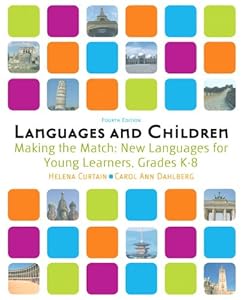
Last year I blogged a popular post called 5 New Year’s Resolutions for Every WL Teacher and in it I suggested that WL teachers:
- Speak more target language in the classroom.
- Get students speaking more target language in the classroom.
- Target students’ particular needs.
- Try something new.
- Share what you’ve learned.
The post earned such a positive response that I thought this January, let’s add to that. What else could WL teachers do to make 2014 a year of more proficiency-based, communicative learning? Here’s to five more ways for all of us to keep learning in 2014. Watch for one idea every other day of the first days of the year.
1. Read a research-based book on learning success.
I love my PLN. As I navigate Twitter, blogs, Edmodo, Pinterest, and such social learning platforms, I have been privileged to learn from many of the best teachers in the country. They’ve made me a better teacher -indeed, a better person- and shared some amazing ideas with me. But I’m trying really hard to figure out how to say this gently. On these same platforms, not to mention some faculty meetings I’ve been to, I’ve seen teachers blithely and unquestioningly sharing, grasping, and affirming appallingly bad ideas. And no one wants to be told their ideas are bad. I’ve come to realize more and more that a lot of teachers, when they write, “Can someone help me with XYZ activity?” don’t want to be told “Hey, you know, maybe you should rethink that.” There are a lot of reasons, expressed and unexpressed. Because I’ve done it before. Because it’s what I learned to do in college. Because it fits in my unit. Because it’s easy to grade. Because it’s fun. Because the kids are doing great on my worksheets.
I get that this sounds arrogant. I’m not sure how to say it without sounding that way. But I’ll assure you that I’m so grateful for the people in my life who have told me, “Hey, you know, maybe you should rethink that – look at this research.” I don’t think some ideas are bad because I’m so great and I come up with all the great ideas. I think they’re bad because they’re contrary to what research says about how people learn. This problem is so huge it makes me not want to provide activities on my blog (but I still will!). We’ve become so focused on other teachers providing us with activities that we’ve neglected to evaluate them in light of how students actually learn. Should I try this technique for how to get my novice students acing quizzes on 30 advanced vocabulary words per week, or should I question whether people are actually capable of internalizing that much vocabulary in the amount of time they’re in my classroom? Or whether vocabulary quizzes are even a good idea?
I’m so concerned about the disconnect between research and practice that I’ve made it my big mission for 2014. You’ll see a lot going on with Musicuentos this year. I hope to be back at conferences after a couple of years of maternity break. I plan to release my second and third ebooks (Cajas de cartón in the summer and Esperanza renace in the fall). I’m continuing some big curriculum writing projects. But my big project for the year is something called The Black Box, a podcast that I hope will be the biggest thing to hit language teaching in 2014, simply because I want to make relevant language acquisition research more accessible to language teachers so it actually impacts the classroom. Every world language classroom.
But, in the meantime, resolve this year to read a book by someone a whole lot smarter than I am. Just one book. Read a book that has real research behind it and helps you understand how people learn, how students succeed, what motivates kids, or something else that will help you evaluate the barrage of activities that come at you. Here are my favorites:
 Brain Rules, John Medina
Brain Rules, John Medina
“If workplaces had nap rooms, multitasking was frowned upon, and meetings were held during walks, we’d be vastly more productive.Brain Rules reveals – in plain English – 12 ways our brains truly work.”
 Drive, Daniel Pink
Drive, Daniel Pink
“Most of us believe that the best way to motivate ourselves and others is with external rewards like money—the carrot-and-stick approach. That’s a mistake, Daniel H. Pink says in, Drive: The Surprising Truth About What Motivates Us, his provocative and persuasive new book. The secret to high performance and satisfaction—at work, at school, and at home—is the deeply human need to direct our own lives, to learn and create new things, and to do better by ourselves and our world.
Drawing on four decades of scientific research on human motivation, Pink exposes the mismatch between what science knows and what business does—and how that affects every aspect of life. He demonstrates that while carrots and sticks worked successfully in the twentieth century, that’s precisely the wrong way to motivate people for today’s challenges. In Drive, he examines the three elements of true motivation—autonomy, mastery, and purpose—and offers smart and surprising techniques for putting these into action. Along the way, he takes us to companies that are enlisting new approaches to motivation and introduces us to the scientists and entrepreneurs who are pointing a bold way forward.”
 The Homework Myth, Alfie Kohn
The Homework Myth, Alfie Kohn
You really can’t go wrong with any of Alfie Kohn’s educational research. He lays out the research in such a way that can be understood and can’t be denied.
“Death and taxes come later; what seems inevitable for children is the idea that, after spending the day at school, they must then complete more academic assignments at home. The predictable results: stress and conflict, frustration and exhaustion. Parents respond by reassuring themselves that at least the benefits outweigh the costs.
But what if they don’t? In The Homework Myth, Alfie Kohn systematically examines the usual defenses of homework – that it promotes higher achievement, “reinforces” learning, teaches study skills and responsibility. None of these assumptions, he shows, actually passes the test of research, logic, or experience.
So why do we continue to administer this modern cod liver oil – or even demand a larger dose? Kohn’s incisive analysis reveals how a mistrust of children, a set of misconceptions about learning, and a misguided focus on competitiveness have all left our kids with less free time and our families with more conflict. Pointing to parents who have fought back – and schools that have proved educational excellence is possible without homework — Kohn shows how we can rethink what happens during and after school in order to rescue our families and our children’s love of learning.”
 How Children Succeed, Paul Tough
How Children Succeed, Paul Tough
“Why do some children succeed while others fail?
The story we usually tell about childhood and success is the one about intelligence: success comes to those who score highest on tests, from preschool admissions to SATs.
But in How Children Succeed, Paul Tough argues that the qualities that matter most have more to do with character: skills like perseverance, curiosity, conscientiousness, optimism, and self-control.”
And here are the two books that are part of this resolution for me:
 To Sell Is Human, Daniel Pink
To Sell Is Human, Daniel Pink
“According to the U.S. Bureau of Labor Statistics, one in nine Americans works in sales. Every day more than fifteen million people earn their keep by persuading someone else to make a purchase.
But dig deeper and a startling truth emerges:
Yes, one in nine Americans works in sales. But so do the other eight.
Whether we’re employees pitching colleagues on a new idea, entrepreneurs enticing funders to invest, or parents and teachers cajoling children to study, we spend our days trying to move others. Like it or not, we’re all in sales now.
To Sell Is Human offers a fresh look at the art and science of selling. As he did in Drive and A Whole New Mind, Daniel H. Pink draws on a rich trove of social science for his counterintuitive insights. He reveals the new ABCs of moving others (it’s no longer “Always Be Closing”), explains why extraverts don’t make the best salespeople, and shows how giving people an “off-ramp” for their actions can matter more than actually changing their minds.”
 Languages and Children: Making the Match, Helena Curtain
Languages and Children: Making the Match, Helena Curtain
A new edition coming out this year, ¡hurra! It’s a textbook, which means it’s expensive, but the new edition should mean you’re able to get an older edition cheaper.
“With a focus on communicative language teaching as it reflects cognitive and second language acquisition theory, this classic in the field provides a wealth of strategies and activities ready to use in the K-8 foreign language classroom. This popular and completely updated text is the only comprehensive foreign language methods text for K-8 classrooms that is also accessible and engaging for undergraduate students. Languages and Children: Making the Match, Fourth Edition, provides extensive new information that is not easily accessible to the field. The Fourth Edition maintains the integrity of past editions while reflecting the new and fascinating language issues that exist in today’s classrooms and making standards-based planning and instruction the guiding principles throughout the book.”
Happy reading – and come back and share your insights!
13 Comments
Comments are closed.




I love this post! Please don’t hesitate to tell me (@SraHass) “Maybe you should rethink that,” especially if you have research for me to look at! 🙂 How do you find books/authors? I have watched Amazon and the like for teaching books, and I must say that I have a hard time discerning the good from the mediocre before I buy them. Are these your favorite researchers? Do you have others you recommend?
Hi Kelly – I will keep that in mind! These are my favorites; Alfie Kohn is probably my favorite educational researcher.
One thing that tips me off to the quality of a book is the length of the text versus the length of the bibliography/notes. If you can look at the table of contents on Amazon and it looks like at least 30% of the book at the end is notes and bibliography, you’ve probably got some quality research in your hands. Also look for recommendations about whose writing is accessible – some textbook authors and researchers write like they’re talking to specialized grad students!
[…] you’ve decided which research-based book to read and how to collaborate with another teacher, how about resolving to survey your students? My third […]
So glad you put this together! I’m always looking for NEW ideas to make sense of what happens in class! What’s your favorite?
For teachers my favorite for sure is Brain Rules. It’s easy to read, easy to understand, and so powerful for making your lesson plans pack brain-based power! Happy new year Megan – hope you’re enjoying your extra two days off! Always nice to see one of my blogging/teaching idols stop by. 😉
[…] faulty companion assessments, lack of authentic materials, and so on. After you’ve read a research-based book, found a way to collaborate, and surveyed your students, my fourth idea for a 2014 resolution is […]
Educators at every level have the opportunity to either ignore or help address this problem. If graduate professors pass the blame to undergrad professors, and undergrad profs to high school teachers, and high school teachers to middle school teachers, the problem with never be fixed. Instead, all educators must help fix this.Furthermore, I cannot imagine a prestigious university or college that would deny a student the opportunity to pursue an independent study, particularly if the course involved in the publication of original research.
Sara-Elizabeth, were you able to start the podcast this yr? I looked for it but couldn’t find it.
I did! I did 5? episodes and have decided that the format wasn’t working for me or my audience. So I have big plans for how to make it a whole lot easier for all of us- stay tuned!
[…] you’ve read Brain Rules and Drive and you need another book to change your teaching/parenting/mentoring world like those did, if […]
[…] be much more practical (after a quick philosophical intro mostly encouraging participants to read Drive). Using lots of examples we’d examine how motivation factors into how we plan lessons, […]
[…] and how people learn language, and why people choose to learn anything. It’s what makes Brain Rules and Drive my top two books from the last decade to recommend to any […]
[…] no secret I love to talk about motivation, and my favorite author on that topic is Daniel Pink, who says that we require three ingredients to feel motivated to pursue something: autonomy, […]